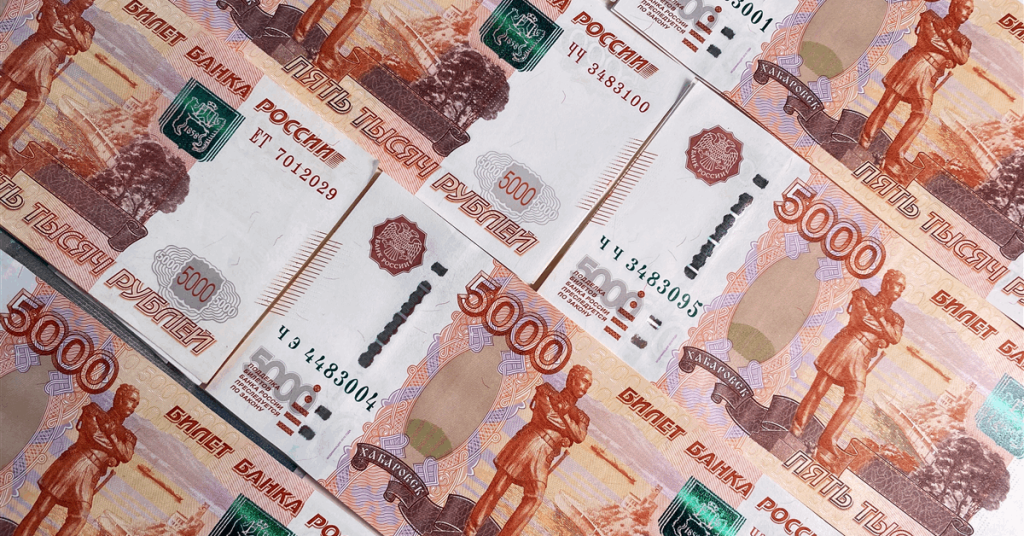Russia’s proceeds from oil in the state budget shrank by a third from a year ago in July following a drop in global crude prices and the appreciation of the nation’s currency.
Oil-related taxes declined by almost 33 percent to 710.4 billion rubles ($8.9 billion) last month, according to Bloomberg calculations based on Finance Ministry data published Tuesday. Combined oil and gas revenue totaled 787.3 billion rubles, down by 27 percent, the data showed.
The drop in proceeds from those industries – which account for roughly a third of Russia’s budget – will ramp up pressure on state finances, which are already burdened by massive spending on fighting in Ukraine.
With the Kremlin’s war well into its fourth year, Russia’s oil industry remains a key target for Western sanctions to limit the inflow of petrodollars into nation’s coffers. The European Union will lower its price cap on Russia crude and ban imports of petroleum products made from the country’s oil, while US President Donald Trump has threatened to impose penalties on Moscow’s energy customers.
On a month-to-month basis, oil revenue rose by almost 71 percent last month, according to Bloomberg calculations. The increase reflects the fact that one of Russia’s main oil taxes – a profit-based levy – is paid four times a year in March, April, July and October.
The ministry calculated Russia’s July oil revenue based on an average Urals price of $59.84 a barrel in June. While that’s the first monthly increase in the nation’s key export blend in five months – global crude prices soared at the time due to fighting in the Middle East – Urals barrels traded 14 percent lower than a year ago, according to data compiled by Bloomberg.
Benchmark prices have declined on an annual basis as Trump’s trade policy threatens to slow the global economy, while OPEC+ boosts production faster than expected.
A stronger currency also contributed to lower revenues as the appreciation means oil companies receive fewer rubles for every barrel they pump and sell. In June, the Russian currency traded at an average of 78.7183 rubles per US dollar, the strongest in more than two years, driven by interest rates remaining near a record.
As a result, the country’s oil producers received 4,711 rubles for each barrel sold compared with 6,127 rubles a year ago, Bloomberg calculations show.
Still, lower global crude and oil-product prices helped the government to reduce subsidies it pays to Russia’s refiners to partially compensate for the difference in fuel prices at home and abroad, a measure designed to boost gasoline and diesel supplies to the domestic market. In July, the budget transferred 59.9 billion rubles in subsidies, down by 58 percent from a year ago.
Generated by readers, the comments included herein do not reflect the views and opinions of Rigzone. All comments are subject to editorial review. Off-topic, inappropriate or insulting comments will be removed.
element
var scriptTag = document.createElement(‘script’);
scriptTag.src = url;
scriptTag.async = true;
scriptTag.onload = implementationCode;
scriptTag.onreadystatechange = implementationCode;
location.appendChild(scriptTag);
};
var div = document.getElementById(‘rigzonelogo’);
div.innerHTML += ” +
‘‘ +
”;
var initJobSearch = function () {
//console.log(“call back”);
}
var addMetaPixel = function () {
if (-1 > -1 || -1 > -1) {
/*Meta Pixel Code*/
!function(f,b,e,v,n,t,s)
{if(f.fbq)return;n=f.fbq=function(){n.callMethod?
n.callMethod.apply(n,arguments):n.queue.push(arguments)};
if(!f._fbq)f._fbq=n;n.push=n;n.loaded=!0;n.version=’2.0′;
n.queue=[];t=b.createElement(e);t.async=!0;
t.src=v;s=b.getElementsByTagName(e)[0];
s.parentNode.insertBefore(t,s)}(window, document,’script’,
‘https://connect.facebook.net/en_US/fbevents.js’);
fbq(‘init’, ‘1517407191885185’);
fbq(‘track’, ‘PageView’);
/*End Meta Pixel Code*/
} else if (0 > -1 && 99 > -1)
{
/*Meta Pixel Code*/
!function(f,b,e,v,n,t,s)
{if(f.fbq)return;n=f.fbq=function(){n.callMethod?
n.callMethod.apply(n,arguments):n.queue.push(arguments)};
if(!f._fbq)f._fbq=n;n.push=n;n.loaded=!0;n.version=’2.0′;
n.queue=[];t=b.createElement(e);t.async=!0;
t.src=v;s=b.getElementsByTagName(e)[0];
s.parentNode.insertBefore(t,s)}(window, document,’script’,
‘https://connect.facebook.net/en_US/fbevents.js’);
fbq(‘init’, ‘1517407191885185’);
fbq(‘track’, ‘PageView’);
/*End Meta Pixel Code*/
}
}
// function gtmFunctionForLayout()
// {
//loadJS(“https://www.googletagmanager.com/gtag/js?id=G-K6ZDLWV6VX”, initJobSearch, document.body);
//}
// window.onload = (e => {
// setTimeout(
// function () {
// document.addEventListener(“DOMContentLoaded”, function () {
// // Select all anchor elements with class ‘ui-tabs-anchor’
// const anchors = document.querySelectorAll(‘a .ui-tabs-anchor’);
// // Loop through each anchor and remove the role attribute if it is set to “presentation”
// anchors.forEach(anchor => {
// if (anchor.getAttribute(‘role’) === ‘presentation’) {
// anchor.removeAttribute(‘role’);
// }
// });
// });
// }
// , 200);
//});

